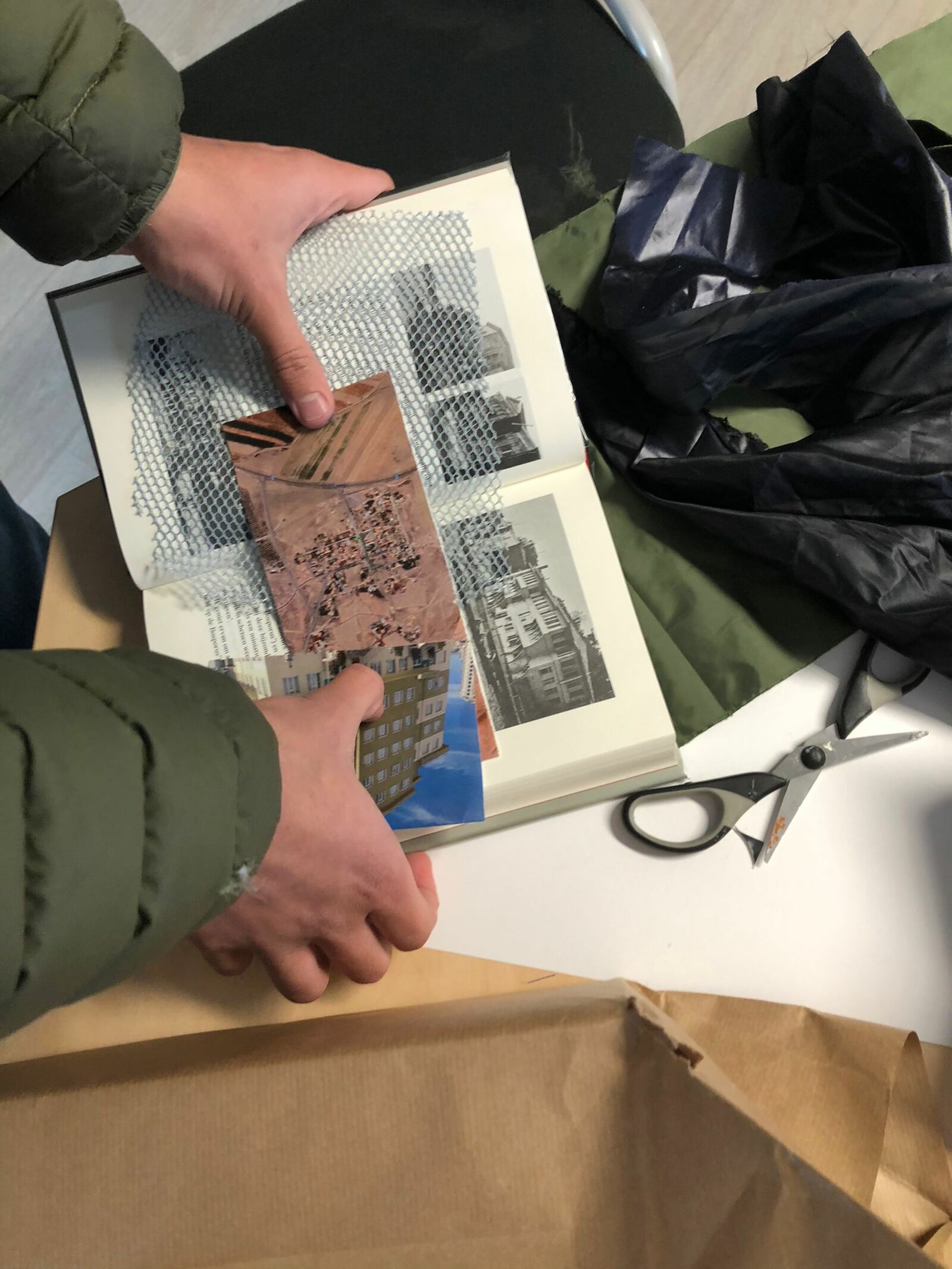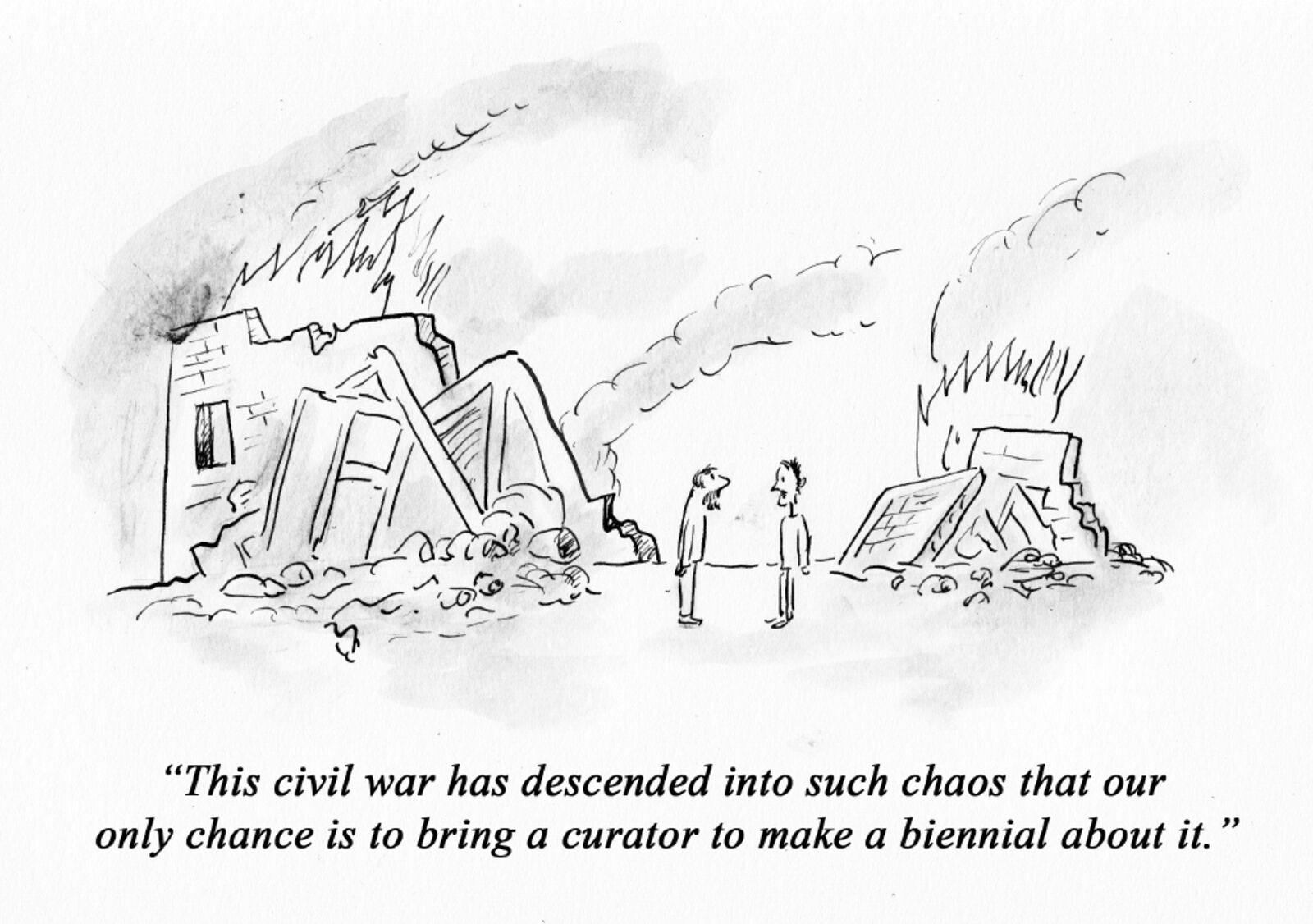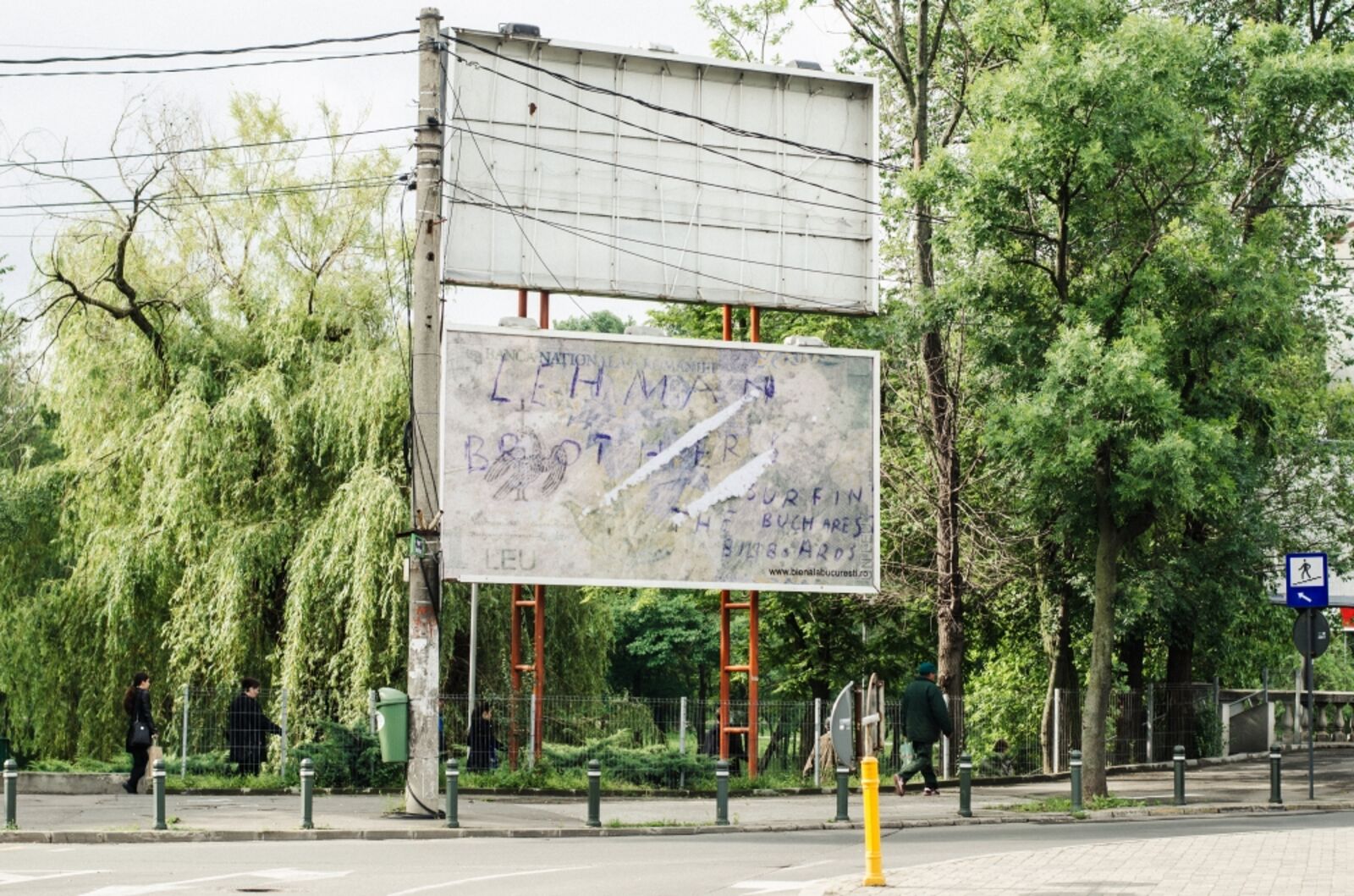Teenage Curators – Als je me echt zou kennen
12:00–17:00
Opening: 3 March at 17:00
de Appel, Schipluidenlaan 12, Amsterdam
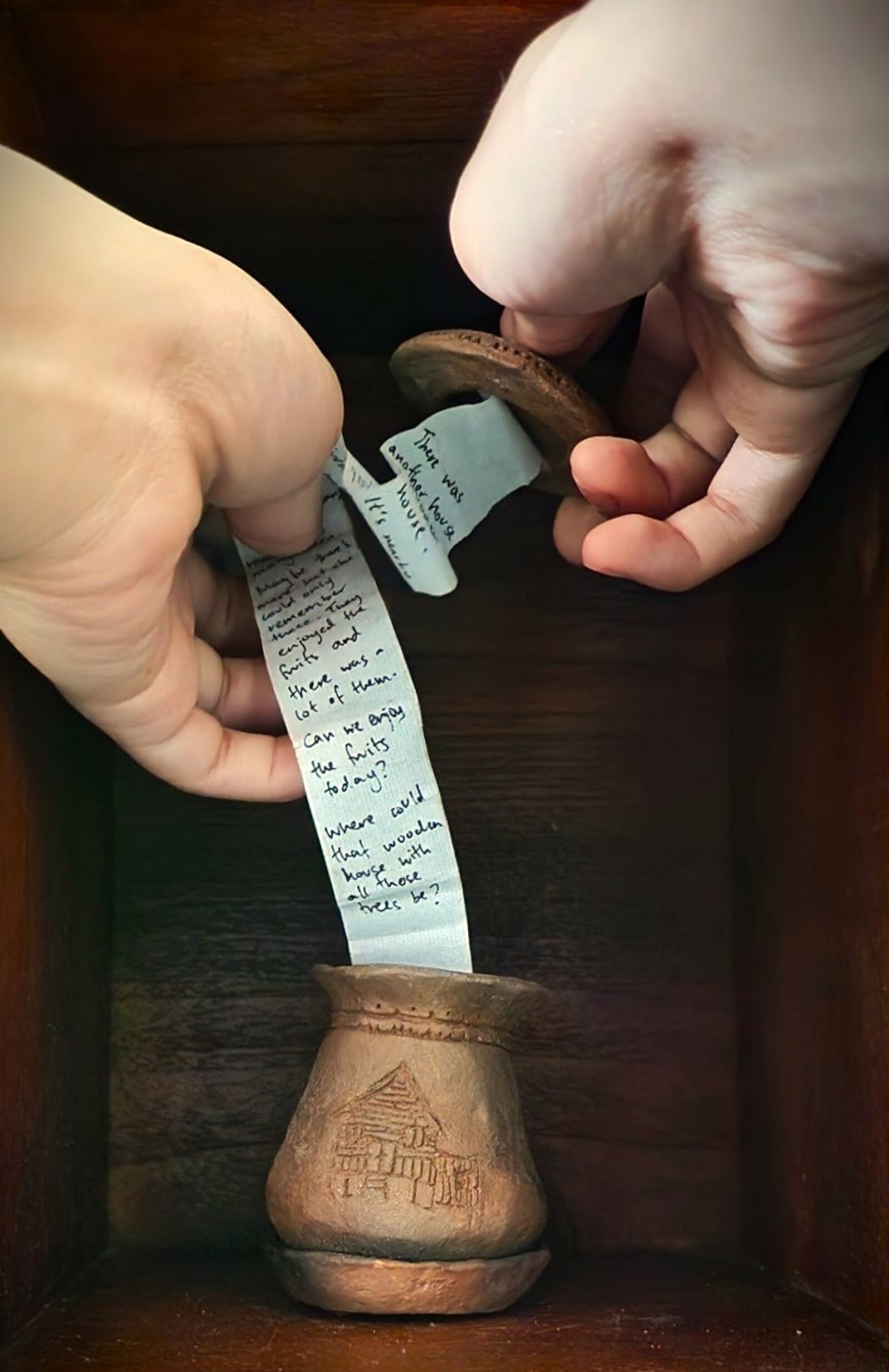
Home Pots: Series Pasu Pertama, part of her "Re-Learning Workshop" Project 2022 by Ain
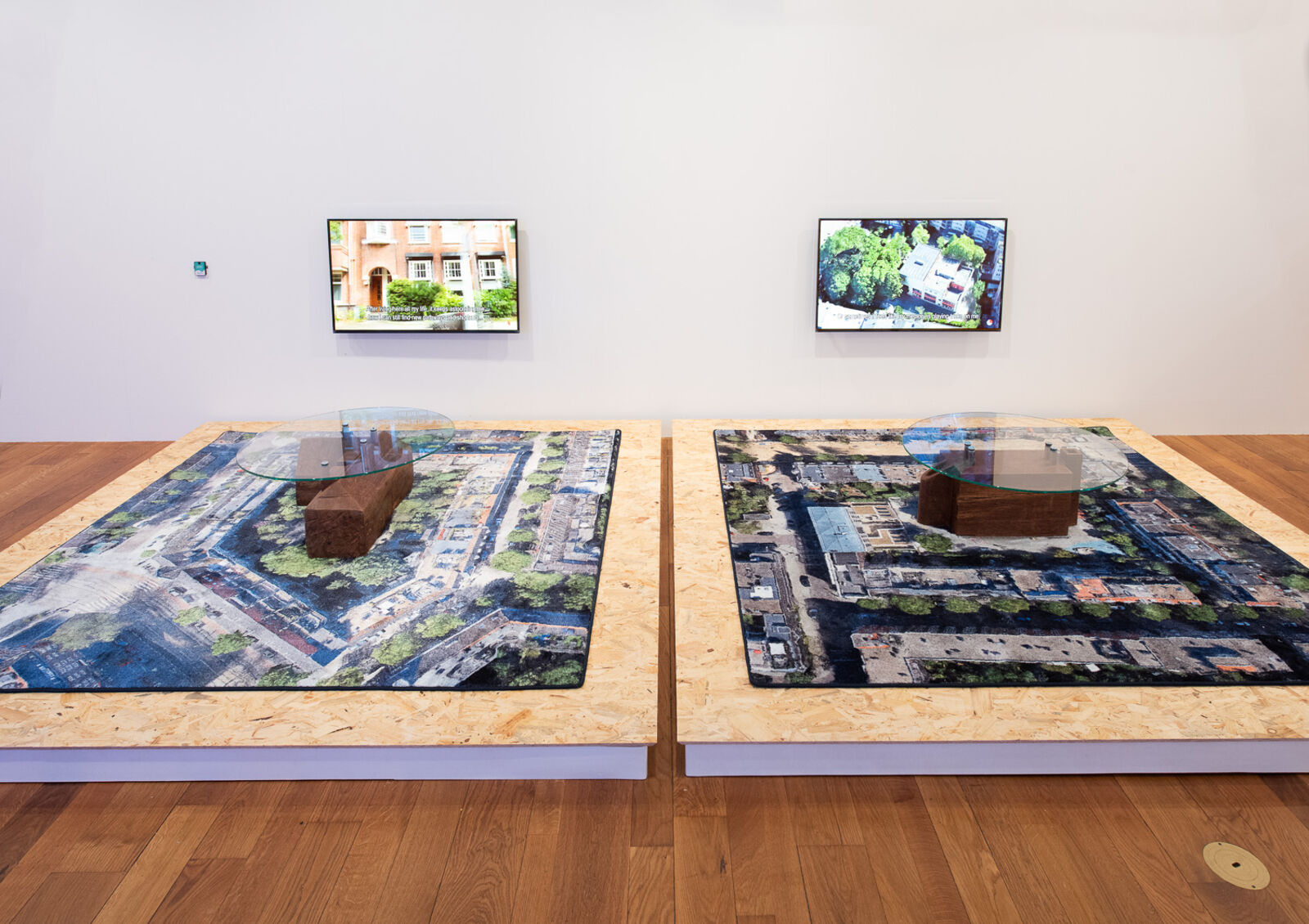
"The Future of the 'Me-nemen-Mory” by Suat Öğüt
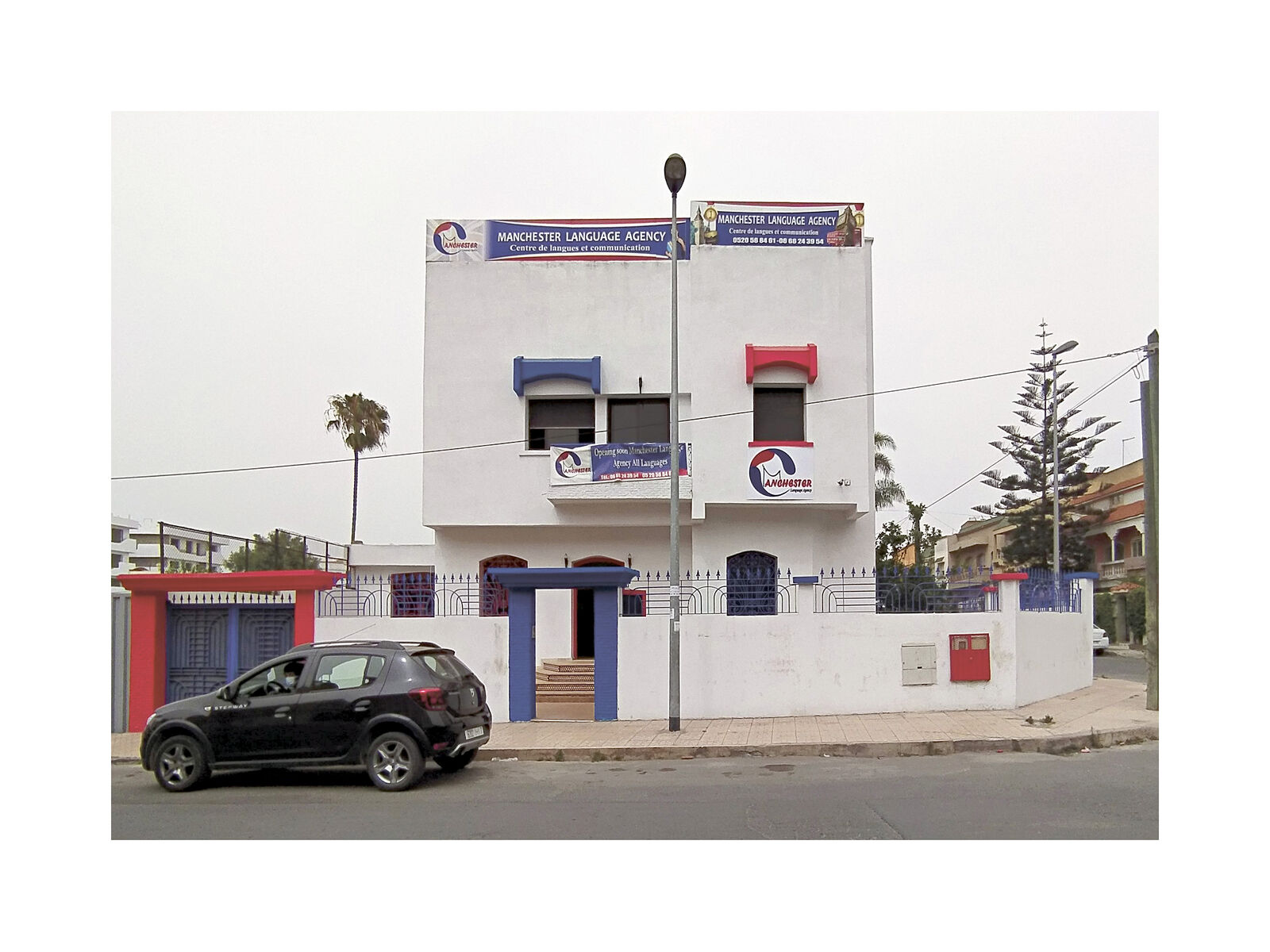
Montessori is has been (2022) by Ghita Skali
"I would like to share the Arabic folk tales that my mother read to me. These folk tales have played an important part in my childhood growing up in Amsterdam."
- Menna (one of the Teenage Curators).
The exhibition “Als je me echt zou kennen…” ("If you really knew me...") is one of the many facets of the 2023 Teenage Curators-programme. Ayman, Beyda, Donovan, Hajar, Oumaima, Menna, Safae and Yahya developed an exhibition out of the desire to create space for stories, childhood memories and questions that are not yet heard sufficiently in the Netherlands.
"Als je me echt zou kennen..." responds to the prejudices they, the Teenage Curators, experience daily. These are moments when they feel different, non-Dutch, despite being born in the Netherlands. Why is it that they are not asked to tell their story, but that their story is often filled in based on assumptions? They want to break through this situation and start the conversation. With this exhibition, they therefore invite visitors to share their experiences in order to reach a new understanding around mutual prejudice.
"Als je me echt zou kennen…” is the result of working together as a group, which at the same time allowed their individual commonalities and differences to come to the fore. They would like to share this individuality and at the same time collectivity by encouraging us to really listen to each other, in order to promote understanding amongst each other. "Als je me echt zou kennen…” is a collection of memories about the lives of teenagers in Amsterdam.
Throughout the process, curator for education at de Appel David Smeulders and storyteller and co-founder of MAQAM Fouad Lakbir have been working with the young curators to help them navigate their interests in relation to exhibition making. The Teenage Curators selected three artists to collaborate with. During the exhibition their work will be shown at de Appel. The artists selected by the youngsters are Suat Öğüt, Ain and Ghita Skali.
About the Teenage Curators
From the moment de Appel settled in Amsterdam Nieuw-West in 2017, we put our ears to the ground in community centres, in schools, with families and artists. That's how we got into conversations about what a home is, and what it means to feel at home. One such dialogue that has blossomed over the past five years is with the Comenius Lyceum on Jacob Geelstraat, near the Appel. Over the years we have learned from each other and strengthened each other, together we have designed several art projects in the school, we showed and made art together, mainly in the school.
Since the beginning of 2022, de Appel has been working with the Teenage Curators; eight young people from the Comenius Lyceum. Ayman, Beyda, Donovan, Hajar, Oumaima, Menna Safae and Yahya came into contact with the Appel during art projects organised in their school. From one of those art projects came the exhibition Stories of Belonging, created together with 36 students. During this exhibition, de Appel made room for six of them in the team to develop a public programme. After this successful collaboration, the youngsters expressed their desire to continue working at de Appel, to further explore the curatorial profession, and to deepen their experiences curating public programmes and exhibitions.
After completing the "Stories of Belonging" exhibition, a question arose among the Teenage Curators about the possibility of seeing and learning more from other artists and curators. Together with David Smeulders and Fouad Lakbir they developed a programme. They visited different artists and institutions, and over a period of two months they saw a lot, discussed with each other, and gained inspiration for this exhibition. For example, during their research they saw and met the following artists, curators and institutions: Chala Westerman, Monika Georgieva, Melissa Appleton, Ka-Tjun Hau, Bureau Postjesweg, Iris Dik, OBA, Richard Kofi, Disco Arabesquo, Moataz Rageb, Ain, Stedelijk Museum Amsterdam, FOAM, Oscam, CBK Zuidoost, Imagine IC. The Teenage Curators, David Smeulders and Fouad Lakbir would like to thank these people and institutions immensely for the time, energy and space they gave us in our research.
About the artists
Suat Öğüt (b. 1986, Diyarbakır) lives and works in Amsterdam and Izmir. Öğüt will show his interactive work "The Future of the 'Me-nemen-Mory” for this exhibition, inviting visitors to discover some of Amsterdam's hidden, silent and forgotten places. In his work The Future of the 'Me-nemen-Mory,' he depicts the unheard and invisible stories of residents. The installation consists of wooden models of Amsterdam school buildings, set down on carpets, with Google -images of the actual locations. The installation functions as a space between domestic and non-domestic environments. In that space, he listens to the stories of residents. According to Öğüt, Turkish communities affirm their cultural existence by adapting to each new location - with stores, markets and other businesses, including in Amsterdam.
For the installation, Öğüt relies on the primary, fundamental need that must be met for everyone to survive: food. By using food (Menemen, a Turkish dish) as a social metaphor, the work brings together different geographical and time zones. The project gives viewers access to individual histories and memories, shedding light on the many layers of Amsterdam. During the exhibition "If you really knew me..." Öğüt will invite the Teenage Curators and visitors to share their favourite dishes and memories.
Ain (Malaysia, 2000) graduated from the Royal Academy of Art in The Hague in 2022. Born in Thailand, she grew up in Indonesia, Malaysia and Japan. Those different environments made her yearn to belong somewhere. Ain's practice consists of video, audio, installations and collectively created artworks. Her practice focuses on themes of belonging, language, memories, national and cultural identity. Her works also reflect her interest in postcolonial discourses within cultural preservation, exoticism, craftsmanship and archives.
For the exhibition "Als je me echt zou kennen…” Ain will present her work Home Pots: Series Pasu Pertama, part of her "Re-Learning Workshop" Project 2022. Ceramics is a common material for archiving stories and the series is inspired by this traditional craft, peculiar to the region where Ain comes from. The drawings and engravings depict the houses where her family previously lived. The patterns on the pots are applied to translate stories into visual symbols. This work is an invitation to the Teenage Curators and visitors to their exhibition to add their stories through drawings, audio stories and ceramic work.
Ghita Skali (born 1992 in Casablanca) is an artist based in Amsterdam. She studied in France, first at Villa Arson, Nice then at the post-graduate program of the Fine Arts School in Lyon. She was a De Ateliers (Amsterdam) participant between 2018 and 2020.
She uses odd news, rumours and propaganda to disrupt institutional power structures such as the western contemporary art world, state oppression and government politics. Her work often ends up as a strong critique with outcomes that penetrate channels that go beyond the exhibition space taking the form of informal trade of goods, legal documents, and things you take home for a warm night tea. She exhibited recently at Kunsthal extra City (Antwerp), Palais de Tokyo (Paris) and at the Stedelijk Museum (Amsterdam).
For the exhibition "Als je me echt zou kennen…” the artist shows Montessori is has been (2022) a series of images of the facades of private schools from Morocco. These schools have playful yet strange architectural facades. For example, some names of the schools refer to Western white men such as Steve Jobs and Walt Disney. With this, Skali wants to demonstrate the continuation of colonisation from the West in Morocco through the school system, and in addition, Skali's work also questions the nature of the education system itself.
